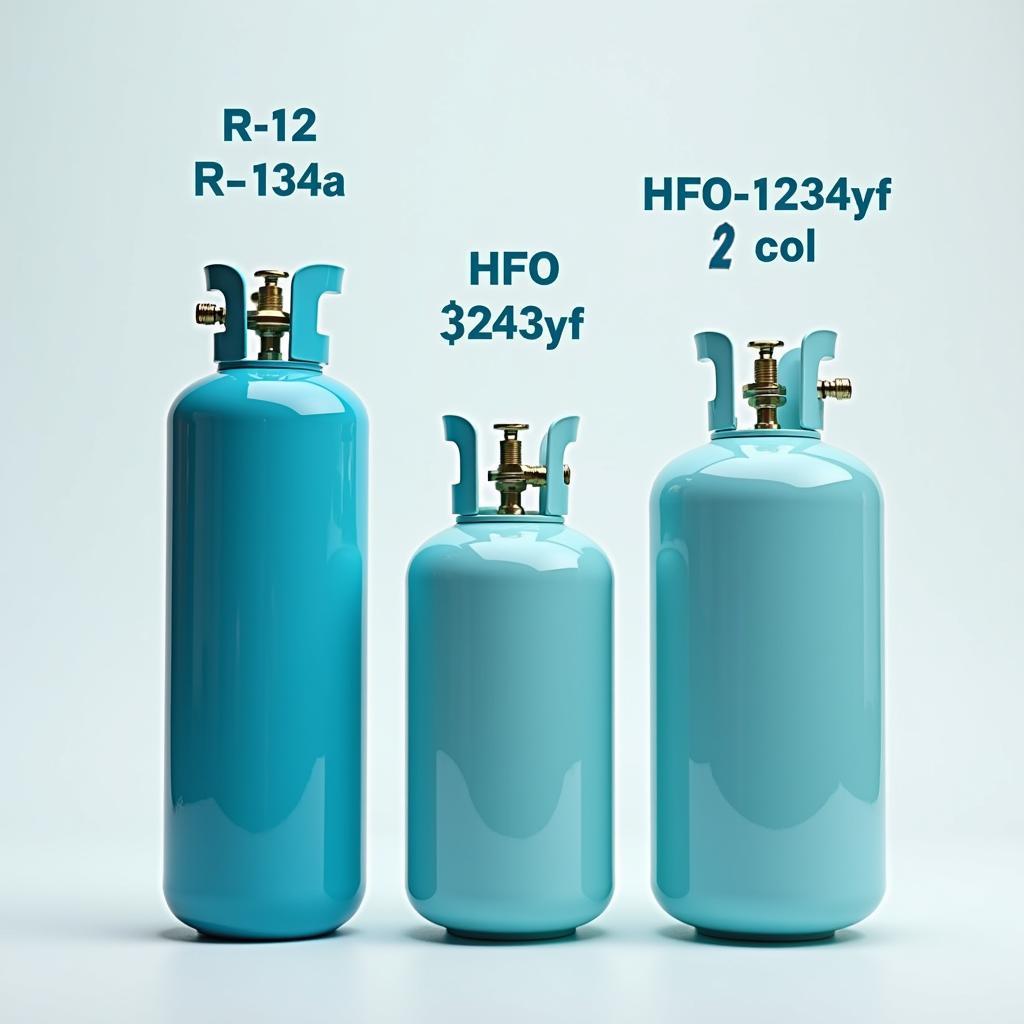Knowing how much it costs to get AC gas service in your car is essential for budgeting and avoiding unexpected expenses. Several factors influence the final price, and understanding these can help you make informed decisions and ensure you’re getting a fair deal. Let’s explore the various aspects that affect AC recharge costs.
Factors Affecting AC Gas Service Costs
The cost of AC gas service isn’t a fixed figure. Several factors come into play, and these can vary significantly based on your location, the type of vehicle you own, and the specific service required.
Type of Refrigerant
Older vehicles often used R-12 refrigerant, which is now outlawed due to its ozone-depleting properties. Modern cars use R-134a or the newer, more environmentally friendly HFO-1234yf. HFO-1234yf is significantly more expensive, impacting the overall service cost.
System Size and Capacity
Larger vehicles, like SUVs and trucks, typically have larger AC systems requiring more refrigerant. This naturally translates to a higher cost compared to smaller cars.
Leaks and Repairs
If your system has a leak, simply recharging the refrigerant is a temporary fix. Locating and repairing the leak is crucial for long-term functionality. The complexity of the leak and the parts required for repair will influence the final cost. Sometimes, components like the compressor, condenser, or evaporator may need replacing, adding significantly to the expense.
Labor Rates
Labor rates vary depending on the location and the type of service provider. Independent garages might offer lower rates than dealerships, but dealerships often have specialized technicians trained on specific car makes and models.
Average AC Gas Service Costs
While the exact price varies, you can expect to pay between $150 and $300 for a standard AC recharge. This typically includes evacuating the old refrigerant, checking for leaks, adding new refrigerant, and testing the system.
Additional Costs to Consider
Beyond the basic recharge, other services might be necessary, such as:
- Leak Detection: Using specialized dyes or electronic detectors to pinpoint leaks can add $50 to $150 to the total.
- Component Replacement: Replacing parts like the compressor, condenser, or evaporator can range from several hundred to over a thousand dollars.
- System Flush: If the system is contaminated, a flush might be needed, adding another $100 to $200.
How Often Should You Get Your Car’s AC Serviced?
It’s recommended to have your car’s AC system inspected at least once a year, preferably before the start of the hot season. Regular maintenance can help identify potential problems early, preventing costly repairs down the line.
Signs Your AC Needs Attention
Be mindful of these signs:
- Weak Airflow: Reduced airflow from the vents suggests a potential issue with the blower motor or a blockage in the system.
- Warm Air: If your AC is blowing warm air, it’s likely low on refrigerant or there’s a problem with the compressor.
- Strange Noises: Unusual hissing, clicking, or grinding sounds from the AC system indicate a potential mechanical problem.
- Unpleasant Odors: Musty or moldy smells suggest the presence of bacteria or mold in the evaporator, requiring cleaning or replacement.
Conclusion
Understanding how much it costs to get AC gas service in your car involves considering several factors, from the type of refrigerant to potential repairs. While a standard recharge falls between $150 and $300, additional costs can arise depending on the specific needs of your vehicle. Regular maintenance and being aware of warning signs can help keep your AC running efficiently and prevent more extensive, costly repairs in the future.
FAQ
- How often should I recharge my car’s AC? Ideally, only when a leak has been repaired, as recharging without fixing the underlying issue is a temporary solution.
- Can I recharge my car’s AC myself? While DIY kits are available, it’s recommended to have a professional service performed due to the specialized equipment and safety precautions involved.
- How can I prevent AC problems? Regular inspections and keeping the system clean can help prevent issues.
- What is the difference between R-134a and HFO-1234yf? HFO-1234yf is a newer refrigerant with a lower global warming potential than R-134a.
- How long does an AC recharge take? Typically, between 30 minutes to an hour.
- Is it safe to drive with a leaking AC? While it’s not immediately dangerous, a leak can lead to complete system failure and discomfort, especially in hot weather.
- Why is my car AC blowing hot air? This could be due to low refrigerant, a faulty compressor, or other issues within the system.
Need help with your car’s AC? Contact us via WhatsApp: +1(641)206-8880, or Email: [email protected]. Our customer service team is available 24/7.

